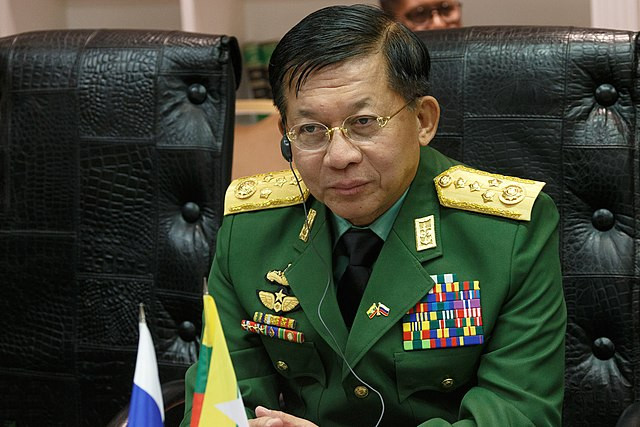The International Criminal Court (ICC) is taking a significant step toward accountability for atrocities committed against Myanmar's Rohingya minority. On Wednesday, ICC Prosecutor Karim Khan formally requested an arrest warrant for Myanmar military leader Senior General Min Aung Hlaing. The charges stem from crimes against humanity, including the forced deportation and persecution of nearly a million Rohingya Muslims.
Speaking from a refugee camp in Bangladesh, Khan stated that the request signals a commitment to justice for the victims. "In doing so, we will be demonstrating, together with all of our partners, that the Rohingya have not been forgotten. That they, like all people around the world, are entitled to the protection of the law," he said.
The case focuses on the military's brutal counterinsurgency campaign in 2017, which forced over 700,000 Rohingya to flee Myanmar for neighboring Bangladesh. Survivors reported harrowing experiences, including mass rapes, killings, and the burning of entire villages. While Myanmar denies accusations of genocide, the United Nations described the military's actions as being carried out with "genocidal intent."
Khan's request comes amid growing international scrutiny of Myanmar's military regime. The country's de facto leader, Min Aung Hlaing, seized power in a 2021 coup, ousting Aung San Suu Kyi's democratically elected government. Since then, the junta has faced intensified resistance from armed ethnic militias and widespread condemnation for human rights abuses.
Matthew Smith, co-founder and CEO of human rights group Fortify Rights, described Min Aung Hlaing as "one of the world's most notorious criminals." He stated, "He's not only responsible for crimes against humanity against Rohingya but also for genocide and war crimes in Myanmar. His victims span Myanmar's many ethnic groups and number in the tens of millions."
The ICC prosecutor's office has been investigating crimes committed against the Rohingya since 2019. The investigation was authorized despite Myanmar not being a member of the ICC, as the crimes occurred partly in Bangladesh, which is under ICC jurisdiction.
Tun Khin, president of the Burmese Rohingya Organisation UK, hailed the arrest warrant request as a "huge step forward in the quest for justice." He said, "For decades, the international community allowed the Myanmar military to violate international law against ethnic and religious minorities without taking any action. Today we have finally taken another step toward justice and accountability."
The ICC move also coincides with renewed violence in Myanmar's northeastern regions, where armed groups are challenging the junta's control. This week, rebels seized a key trading town near the Chinese border, further destabilizing the military regime.
The Rohingya continue to face dire conditions. Nearly one million live in overcrowded refugee camps in Bangladesh, while those remaining in Myanmar endure systematic persecution. Activists, including Nay San Lwin, emphasize the urgency of action. "We deserve justice, we want justice, only the international court can deliver justice for us," San Lwin said.
The ICC judges will now assess the evidence presented by Khan before deciding whether to issue an arrest warrant. While there is no fixed timeline for the decision, human rights advocates stress the need for swift action. Maria Elena Vignoli of Human Rights Watch stated, "The ICC's action is an important step toward breaking the cycle of abuses and impunity."






